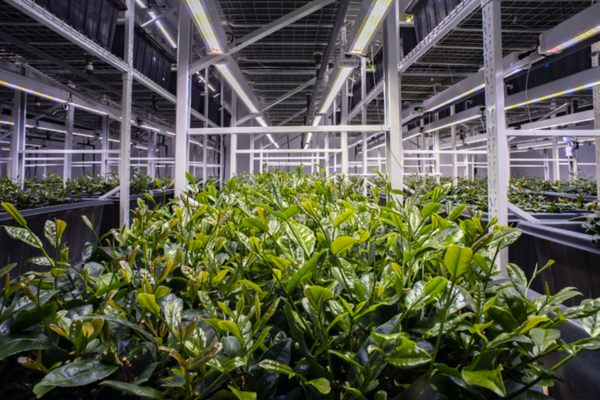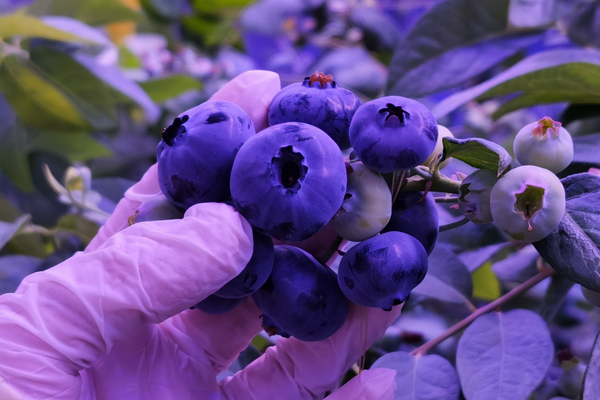In SananBio's vertical farm, tea trees are growing densely. "This is one of our ongoing experiments to grow high-quality tea through vertical farming. China is the largest tea-growing country and consumes the most tea in the world. However, the export volume to Europe and the United States is not high, mainly due to the problem of pesticide residues. Faced with the gradual improvement of pesticide residue standards in European and American countries, the increasingly stringent standards have further restricted China's tea export. In addition, when tea is grown outdoors, the taste and flavor will change due to cultivation techniques, soil conditions, climate, and altitude. If we can grow high-quality tea through modern planting methods such as vertical farms, reduce the use of pesticides, and maintain the excellent taste of tea, we can not only promote tea to more markets but also reduce the use of pesticides to protect our planet," explains Galen from SananBio.

Galen has been working in SananBio for many years. "In SananBio, we don't just provide a solution but want to use technology to solve some real-life problems, such as those high-value crops that are not suitable for long-distance transportation and storage, like berries. Production close to cities can allow more people to access berries and reduce their carbon footprint. Through continuous exploration and research, it is our goal to realize localized production in a sustainable way."
"We help growers to complete the design and calculate the return on investment of their business and support them to obtain loans from banks." At present, the high initial investment in vertical planting is a topic that growers are very concerned about. But on the other hand, rising logistics costs and concerns about long-distance transportation have also made local production more attractive. We see that growers want to know more about the fields they are stepping into. We want to make sure their business is a success, which is why we train our partners according to their needs." He added that the current management of vertical farms is a challenge for first-time growers, which is different from traditional soil cultivation and greenhouse cultivation. Therefore, training is very important. And once the farm is up and running, the challenge of sales begins. That's why we're always looking for partners all over the world, whether it's setting up a farm or selling the produce. We have partnerships in over 30 countries and are always looking to expand."

"It can be seen that vertical farms have received more attention around the world. Especially since the COVID-19 pandemic, more families in China have begun to try small vertical farms to grow vegetables. In Europe, small farms are also very popular in restaurants. Medium-sized farms have already started supplying supermarkets, and we've even had requests from distribution companies. In our view, the vertical farming market is currently very positive, and more innovations and applications are driving it further," says Galen.
"We have carried out a lot of projects with our partners. The UK is currently a very important market for vertical farms, and several projects of more than 1,000 square meters are underway." Although the planting area is not very large, it is very significant in terms of technology and marketing. The UK is facing many challenges in the fresh produce sector, such as rising import costs and labor shortages."
"The sharp rise in energy costs in Europe is also a challenge we have to face. In the Czech Republic, a 4,000-square-meter indoor farm was originally planned. The first phase of a 1,500-square-meter farm is under construction, but the second phase had to be postponed due to rising electricity prices. Growers are installing solar panels to reduce electricity costs due to skyrocketing energy prices. Even they are considering the recovery of waste heat inside the farm for secondary use."
"We have also landed more and larger projects in China, such as the automation project in Yangling Agricultural High-tech Industry Demonstration Zone and the vertical farm in Jiuquan Satellite Launch Center. Thanks to our partners, we are able to serve growers well both at home and abroad," concluded Galen.
For more information:
Galen
Sananbio
Email: global@sananbio.com
Email: galen@sananbio.com
www.sananbio.com
